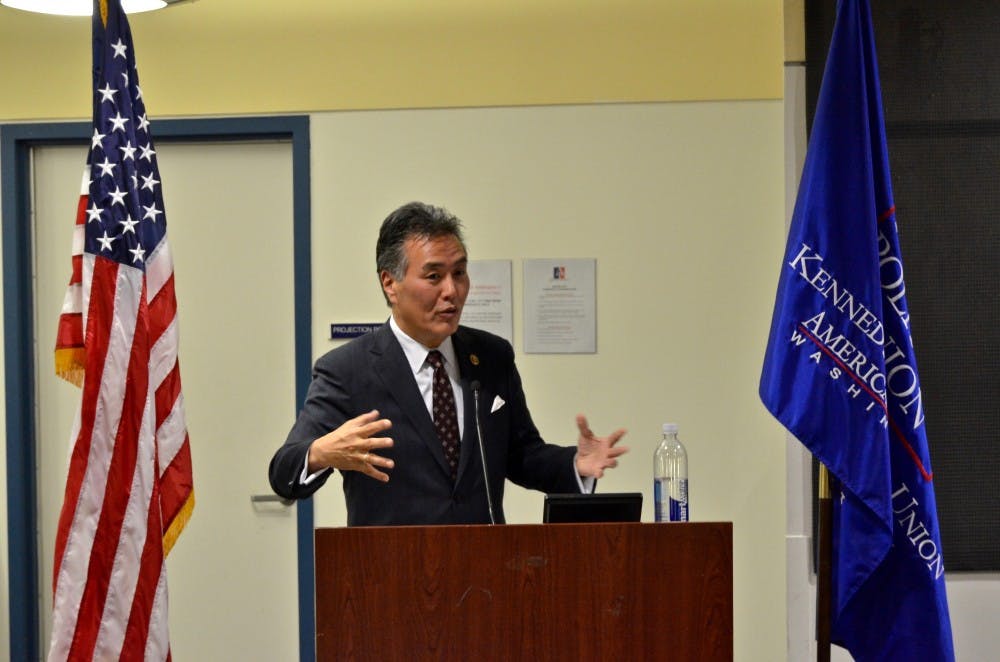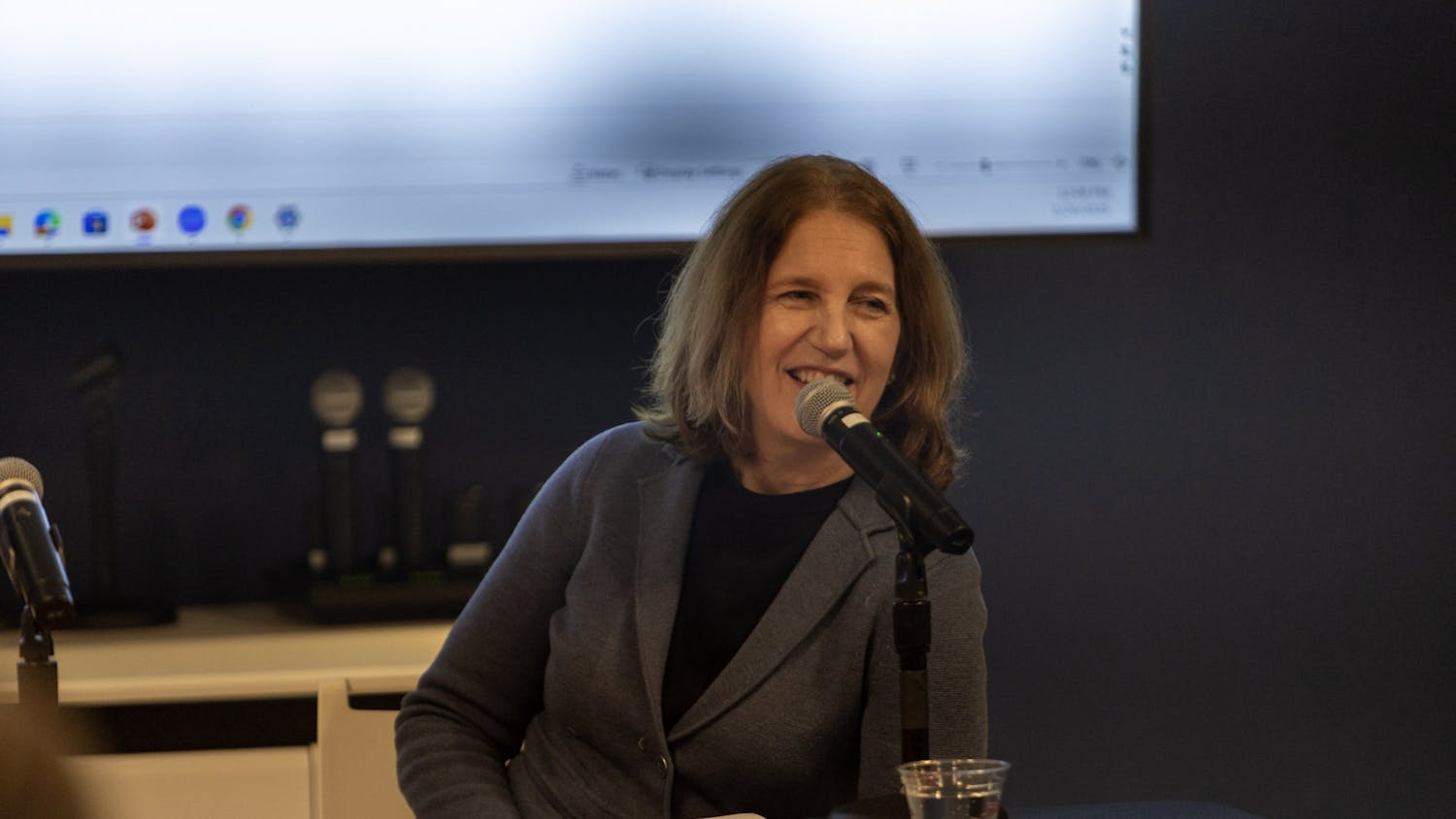Rep. Mark Takano (D-CA), spoke at AU on Tuesday night at an event hosted by the Kennedy Political Union, the Asian-American Student Union and AU Queers and Allies.
Representative Takano is the first openly gay person of color to serve on the United States Congress; a status he has held since January 2013 when he took office as a representative of the 41st congressional district of California.
Takano broke his speech down into three stories; one about his grandparents’ and parents’ internment during World War II, another about how his parents rose from having almost nothing to achieving a middle-class socioeconomic status, and the last was about how his plans to become a lawyer transformed into a bachelor’s degree in government and then a thirty-year tenure in teaching.
Takano related the tale of his grandparents’ and parents’ internment to the current election-centered rhetoric on keeping immigrants out of America and closing U.S. borders to Syrian and Iraqi refugees. The ideas fueling these decisions are the essentially the same that led to the imprisonment of his family during World War II, he said during the speech.
“It is not the size of our military or our enormous wealth; it is the idea that no matter what you believe, or where you come from, or who you love, America is your best shot on the planet to be treated with respect...It’s about protecting this culture of respect that we’ve created together where everyone is accepted and everyone is equal under the law,” Takano said. This is what separates us from our enemies.”
In an interview with The Eagle, Takano said that while he does not receive pushback from his colleagues or superiors regarding his identity as an openly gay person of color, Nancy Pelosi champions him to other groups as the first openly gay person of color to serve in the United States House of Representatives, she regards him as “a badge of honor”.
Before he became a Congressman, Takano was a teacher in Boston and its surrounding areas and then in California. He discussed the difference between the wealthy Brookline schools just outside of Boston and then working in inner-city Boston schools. He had initially only intended on taking the jobs as a substitute for five years before he went to law school, but ended with a thirty-year tenure in teaching.
“I saw the big disparity in educational opportunities and I thought, ‘you know, this education is central to who we are as Americans, what we believe about ourselves being a place of equal opportunity, low-income kids can make it here in this country,” Takano said in the interview.





